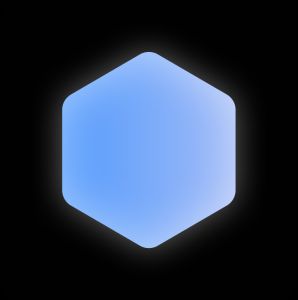AI Agent Frameworks: Build AI Agents in 2025
AI Agent Frameworks in 2025: Discover the top 7 AI agent frameworks. Guide to building autonomous AI agents. Explore each framework's use case.

The landscape of AI has shifted dramatically in the last two years. We've moved from simply prompting LLMs to building autonomous agents that can reason, plan, and act in the world. If you're interested in developing AI systems that can operate with minimal supervision, you'll need a framework - a structured way to create, deploy, and manage these agents. This article explores the most effective frameworks for building AI agents in 2025, examining their strengths, limitations, and ideal use cases. Whether you're an AI engineer starting your first agent project or a technical leader evaluating options for your team, understanding these frameworks will help you make better decisions about the tools you use.
What Are AI Agent Frameworks and Why Do Every AI Engineer Need Them?
An AI agent framework provides the structure and tools needed to build autonomous systems that can perceive their environment, make decisions, and take actions to achieve specific goals. Unlike simple applications that use LLMs for a single task, ai agents can handle complex tasks involving multiple steps, learning, and adaptation. These frameworks for building AI agents have become essential infrastructure for modern AI development.
The need for these frameworks has emerged because building agentic AI requires more than just access to powerful models. You need ways to manage context, orchestrate workflows, handle tool usage, and create reliable agent behaviors. Without a framework, developers often reinvent solutions to common problems like memory management or agent orchestration. A good ai agent framework abstracts away these complexities, allowing you to focus on the unique aspects of your application. As generative AI continues to evolve, these frameworks provide the foundation for creating production-ready AI solutions.
How Do Open-Source Frameworks for Building AI Agents Compare to Commercial Options?
Open-source frameworks for building AI agents offer flexibility, transparency, and community support that commercial options sometimes lack. With open-source frameworks, you can inspect and modify code, contribute improvements, and adapt the framework to your specific needs. This transparency is particularly valuable when debugging complex agent behaviors. The best open-source frameworks enable agents to access a wide range of tools and capabilities.
Commercial options from companies like OpenAI, on the other hand, often provide more polished experiences, better documentation, and direct integration with powerful AI models. They typically require less setup time and offer more reliability for production environments. The choice between open-source and commercial frameworks often depends on your team's technical capabilities, budget constraints, and how much customization you require. Many teams even use both - leveraging open-source frameworks for experimentation and commercial options for production. The framework for building you choose will significantly impact your agent development process.
What Makes the Best AI Agent Frameworks in 2025?
The best AI agent frameworks share several key characteristics that separate them from the dozens of options now available. First, they provide clear abstractions for the core components of agent architecture: memory, planning, reasoning, and action execution. Second, they offer flexible integration with different LLMs, allowing you to switch between models as technology evolves. Advanced AI frameworks support customizable agents that can be tailored to specific domains.
A sophisticated agent framework should also enable multi-agent interactions, where multiple agents can work together, communicate, and divide tasks. This capability is becoming increasingly important as complex AI systems often require specialized agents focused on different aspects of a problem. Leading agent frameworks that enable agents to coordinate effectively provide significant advantages. Finally, top frameworks provide robust testing and evaluation tools - essential for ensuring agent behavior remains predictable and safe as systems grow more complex. The frameworks that excel in these areas give developers the strongest foundation for building agentic AI applications and creating a team of agents that work together seamlessly.
When Should You Build Your Own Agent Framework vs. Using Existing Options?
Building your own AI agent framework from scratch is rarely the right choice, but there are specific situations where it makes sense. If you're working on highly specialized agents that need custom orchestration or unique integration requirements, existing frameworks might be too restrictive. Similarly, if your agents need to operate with extreme efficiency constraints, general-purpose frameworks might introduce too much overhead. Developing an open-source framework for building from scratch requires significant resources.
For the vast majority of use cases, however, existing frameworks provide tremendous advantages. They encapsulate best practices developed through thousands of agent development projects, saving you from making common mistakes. They also typically offer well-tested solutions for memory management, error handling, and agent debugging. Even when existing frameworks don't perfectly match your needs, extending them is usually more efficient than starting from zero. Remember that the goal is building effective agents, not perfect frameworks. The top AI agent frameworks already solve many common challenges in ai agent development.
How Do OpenAI's Agentic Tools Compare to Independent AI Agent Frameworks?
OpenAI has steadily expanded its agent-building capabilities, offering increasingly sophisticated tools for developing autonomous AI agents. Their approach focuses on making it easier to create agents that leverage their powerful models, with particular attention to safety, monitoring, and controlled deployment. For many use cases, this tight integration with leading models provides significant advantages. Their AI model options continue to expand, making it possible to build agents with increasingly specialized capabilities.
Independent frameworks, by contrast, typically offer more flexibility in how agents are structured and operate. They're often designed to work with multiple AI models, including open-source options, which can reduce costs and dependencies. These frameworks frequently innovate faster in areas like agent collaboration, custom memory systems, and specialized agent types. Agent frameworks for building AI that aren't tied to specific vendors often provide more freedom to experiment with different approaches. The choice between OpenAI's tools and independent frameworks depends largely on whether you value standardization and safety guarantees or flexibility and control over agent behavior.
Discover the Top 7 AI Agent Frameworks for Building Intelligent Agents Today
The landscape of AI agent frameworks has consolidated somewhat, with several clear leaders emerging. LangChain remains popular for its comprehensive toolkit and active community, while AutoGPT offers simplified agent creation for developers new to building agentic systems. CrewAI has gained traction for its focus on multi-agent AI systems where agent interactions are central to solving problems. These frameworks represent some of the best AI agent frameworks available today.
For enterprise applications, Microsoft's Semantic Kernel provides a production-ready AI framework with strong tooling and integration capabilities. Frameworks like BabyAGI and AgentGPT focus on research and exploration of autonomous systems, making them valuable for experimenting with novel agent architectures. Finally, newcomers like Fixie offer streamlined approaches to building conversational agents that integrate with existing systems. The top 6 AI agent frameworks continue to evolve rapidly, with new features being added regularly to support the development of multiple AI agents.
Each of these frameworks represents a different philosophy about how agents should be built and operated. The best choice depends on your specific requirements, the complexity of your agents, and whether you're focusing on research, prototyping, or production deployment. AI agent frameworks in 2025 offer significantly improved capabilities compared to earlier generations. A popular AI agent framework today might include support for atomic agents that can be combined into more complex systems.
How Do You Build AI Agents to Handle Complex Tasks with Multiple Agents?
Complex tasks often require breaking work down among multiple agents, each handling different aspects of the problem. Effective frameworks provide mechanisms for agent orchestration - coordinating how specialized agents communicate and collaborate. This might involve supervisor agents that delegate tasks to other agents, or peer-based systems where agents negotiate responsibilities. Building agentic AI systems requires careful consideration of how agents working together will coordinate their activities.
The key challenge in multi-agent systems is ensuring coherent behavior across agent interactions. Good frameworks provide tools for defining agent roles, managing shared context, and resolving conflicts when agents disagree. They also help with sequencing agent activities, so one agent's output becomes another's input in logical workflows. As tasks grow more complex, the ability to effectively coordinate multiple AI agents becomes increasingly important, making this capability a critical differentiator among frameworks. Modern agent frameworks provide sophisticated tools for managing tasks to other agents efficiently. Agent creation becomes significantly easier with frameworks that handle the communication layer between agents.
What Are the Common Pitfalls When Building Agentic AI Agents?
Many developers underestimate the complexity of building reliable agents, particularly when it comes to handling edge cases and ensuring consistent behavior. Common pitfalls include creating agents with unclear objectives, failing to properly manage context across agent interactions, and not establishing appropriate constraints on agent actions. Even with autonomous AI agents, human oversight remains essential for critical applications.
Another frequent issue is the tendency to overestimate agent capabilities, particularly regarding reasoning and planning. Even with the best ai frameworks, agents still need carefully designed prompts, sufficient context, and appropriate guardrails. Many projects fail because developers treat agents as more autonomous or capable than they actually are. Successful agent development requires a balanced approach - leveraging the framework's capabilities while understanding its limitations and compensating accordingly. Agents need well-defined boundaries and clear success criteria to function effectively. Agents using complex algorithms still need careful monitoring and oversight.
How Do You Evaluate Which AI Agent Framework Is Right for Your Use Case?
Choosing the right framework requires clear understanding of your specific use case and requirements. Start by assessing the complexity of tasks your agents need to perform. Simple conversational agents might work well with lightweight frameworks, while complex systems requiring planning and tool use demand more robust options. The solution for generative AI applications will vary significantly depending on your specific requirements.
Consider also your team's technical capabilities and familiarity with different programming environments. Some frameworks require deep knowledge of specific technologies, while others offer more accessible entry points. Evaluate how well each framework handles your particular requirements around memory management, tool integration, and agent collaboration. Finally, look at community activity, documentation quality, and update frequency - these factors often determine long-term success when building on a particular agent framework. Developers to build AI agents effectively need tools that match their specific needs and technical background. An agent framework that enables rapid prototyping can accelerate your development process significantly.
What Does the Future Hold for Open-Source Frameworks and Intelligent Agents?
The future of AI agent frameworks will likely see increased standardization around core capabilities while specialization emerges for specific domains. We'll likely see frameworks that focus exclusively on particular types of agents - research assistants, creative partners, or autonomous problem-solvers - rather than trying to be universal solutions. The future of AI clearly involves more sophisticated agent architectures and improved collaboration capabilities.
Expect significant advances in how frameworks handle agent orchestration, allowing for more sophisticated team of agents that can dynamically reorganize based on task requirements. The distinction between frameworks and agents themselves may blur as frameworks incorporate more self-improvement capabilities. AI agents may increasingly help build and optimize other agents. The most successful frameworks will evolve to support this next generation of autonomous systems while maintaining the simplicity and reliability that developers need. Multi-agent AI systems will become increasingly common as tasks grow more complex. Agents without extensive training data will become more capable through improved transfer learning techniques.
How Can AI Engineers Build Agents Using the Best AI Frameworks Today?
For AI engineers looking to begin working with agents, the learning curve has never been more accessible. Start by experimenting with one of the open-source frameworks mentioned earlier. Most provide example projects that demonstrate basic agent capabilities, allowing you to understand the core concepts without building everything from scratch. The best AI frameworks provide comprehensive documentation and examples to help you get started.
Focus initially on single-agent systems with well-defined tasks before attempting more complex multi-agent architectures. Build your understanding of how different components - memory, planning, tool use - fit together in practice. Join communities around your chosen framework to learn from others' experiences and share your own challenges. The field is evolving rapidly, so continuous learning is essential, but the fundamentals of good agent design remain consistent across frameworks and will serve you well as you develop more sophisticated applications. Role-based agent designs can help clarify responsibilities when creating agents that integrate with existing systems. Allows AI engineers to develop skills incrementally while building increasingly complex agents like those used in production environments.
Building Agentic AI Systems: Frameworks for Creating Intelligent Agents in 2025
The most powerful aspect of modern AI agent frameworks is how they enable developers to build ai agents without needing to solve fundamental problems of reasoning, planning, and action execution. A good framework lets you focus on what makes your application unique while providing robust solutions for common challenges. Building AI agents in 2025 is significantly easier than it was just a few years ago, thanks to these specialized tools.
As you explore different frameworks for building ai agents, remember that the goal isn't to find a perfect solution, but one that matches your specific needs. The best framework is the one that helps your team create agents that reliably solve your particular problems. Sometimes that means choosing the most popular option with the largest community; other times it means selecting a specialized framework designed for your exact use case. The explosion of agent frameworks reflects the growing importance of agentic systems in the AI landscape, and understanding these tools is becoming an essential skill for every AI engineer. Agents capable of handling complex, multi-step tasks are becoming increasingly central to advanced AI applications. Define agents carefully based on your specific use cases to maximize their effectiveness. Making AI agents work together effectively remains one of the key challenges in building robust AI systems that can tackle real-world problems.
To remember:
- AI agent frameworks provide structure for building autonomous systems that can reason, plan, and take action
- Open-source frameworks offer flexibility and transparency while commercial options often provide better integration and documentation
- The best frameworks support multi-agent interactions where specialized agents can work together on complex tasks
- Building your own framework rarely makes sense unless you have highly specialized requirements
- Common pitfalls include unclear objectives, poor context management, and overestimating agent capabilities
- Framework selection should be driven by your specific use case, team capabilities, and requirements
- The future will likely bring more specialized frameworks for particular agent types and use cases
- New AI engineers should start with simple projects using established frameworks before attempting complex agent systems
Featured AI Agents

ChatBot is an all-in-one platform to create, deploy, and track chatbots across channels.
- Visual builder
- AI-powered chatbots
- Let training improve your chatbots every day

